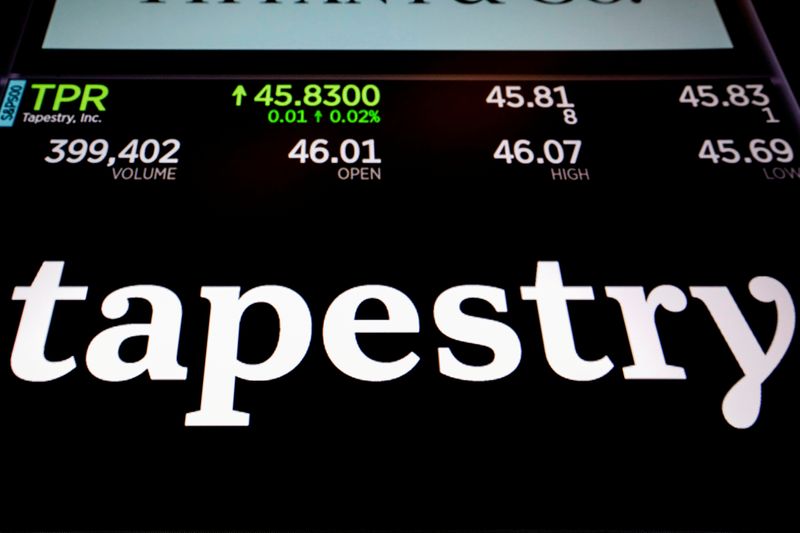By Uday Sampath Kumar and Medha Singh
(Reuters) - Tapestry Inc (N:TPR) Chief Executive Officer Jide Zeitlin has been negotiating lower rents for the company's Coach and Kate Spade stores for more than a month, using the brands' power to draw in U.S. mall traffic as leverage in tough talks with landlords.
The company, whose handbags have won it a place among the big names of the fashion world, is just one of a raft of major U.S. retailers seeking to lower rent bills to make sure they have enough cash to weather the COVID-19 pandemic.
But with thousands of stores closed under strict lockdown measures and multiple national retail chains crumbling, mall operators' rent collections have collapsed, raising doubts about their future.
Mall operators collected only 15% of April rent and trends are looking worse for May, according to CenterSquare Investment Management, which specializes in real estate.
After a decade of change that has shaken up the U.S. retail landscape and driven some out of business, Zeitlin says mall rents need to fall anyway for retailers' brick-and-mortar strategies to make sense.
But the talks are still "challenging and difficult" and he has a warning for his landlords: "What they need to do is be really thoughtful about not killing the goose that lays the golden eggs," he told Reuters last week. Retail rents in the United States have increased by 2.6% a year over the past three years, and currently average $21.80 per square foot, according to real estate analytics company CoStar Group (O:CSGP). However, the coronavirus crisis has lead the firm to estimate retail rents falling anywhere from 8% to 13% in 2020.
One of Coach's landlords is the United States' biggest mall operator- Simon Property Group (N:SPG), which reports first quarter results later on Monday.
The company's outlook on the next few months will be more closely watched than ever before, as it begins to slowly reopen malls, while dealing with tenants that have either gone out of business or are nearing the edge. Simon and rival Macerich Co (N:MAC), which also reports this week, both own malls that count J.C. Penney & Co (N:JCP) as a tenant. Reuters reported on Friday the department store operator is preparing to file for bankruptcy protection with plans to permanently close about a quarter of its roughly 850 stores.
"Here's the problem- a lot of the other smaller retailers can void their leases and have recourse to stop paying rent if those big anchor stores aren't there any more." said Scott Crowe, chief investment strategist at CenterSquare.
"90% of the malls in this country won't be here in year," Crowe said.
Gap Inc (N:GPS), one of Simon's biggest tenants, said in April it would save about $115 million per month by ceasing paying rent for its stores in North America, many of which may not reopen even after the economy comes fully back on line.
Graphic - Mall rents have surged over the last decade: https://fingfx.thomsonreuters.com/gfx/editorcharts/xegvbkqlkpq/eikon.png
JUST PRETENDING
While many are genuinely just trying to find a way through the financial mess left by the shutdowns, landlords and sector analysts say some retail names with significant financial backing are simply seeking to use the crisis to force their interests.
CenterSquare's Crowe, who overseas some the of the firm's $200 million worth of U.S. real estate, said some of those big chains are using that leverage to play hardball in rent negotiations and warned of repercussions.
Big national chains sign long-term leases and drive foot traffic to surrounding stores, giving them more leverage - and better deals - with landlords who are at risk of defaulting on their own debts.
Jackson Hsieh of retail property group Spirit Realty (N:SRC) says he has received deferral requests for almost half of April's rents.
Spirit owns just under 1,800 properties in 48 states. Its biggest tenants include Home Depot (NYSE:HD), Walgreens and Church's Chicken.

"We started to get requests from people who really didn't deserve a deferral," he says. "Three investment grade companies asked for a deferral. I said if you don't pay, we'll default you and they paid."